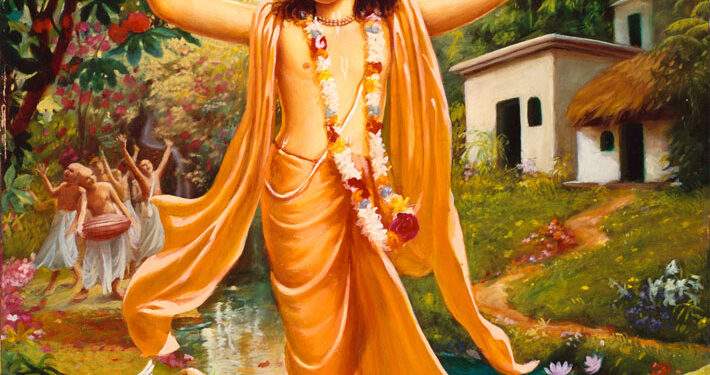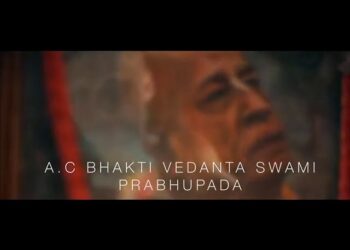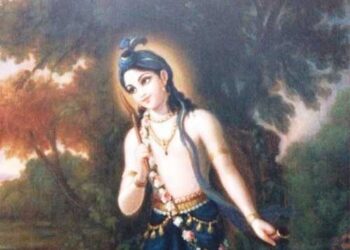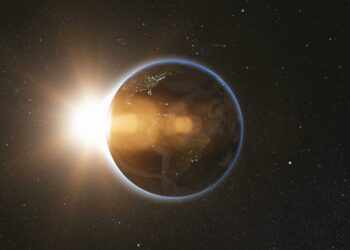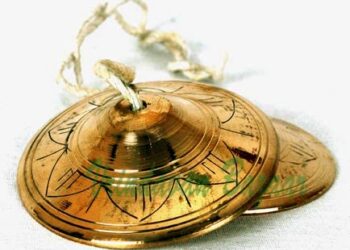Srimad Bhagavatam, Canto 1
Chapter 3
TEXT 28
ete cāṁśa-kalāḥ puṁsaḥ
kṛṣṇas tu bhagavān svayam
indrāri-vyākulaṁ lokaṁ
mṛḍayanti yuge yuge
SYNONYMS
ete—all these; ca—and; aṁśa—plenary portions; kalāḥ—portions of the plenary portions; puṁsaḥ—of the Supreme; kṛṣṇaḥ—Lord Kṛṣṇa; tu—but; bhagavān—the Personality of Godhead; svayam—in person; indra-ari—the enemies of Indra; vyākulam—disturbed; lokam—all the planets; mṛḍayanti—gives protection; yuge yuge—in different ages.
TRANSLATION
All of the above-mentioned incarnations are either plenary portions or portions of the plenary portions of the Lord, but Lord Śrī Kṛṣṇa is the original Personality of Godhead. All of them appear on planets whenever there is a disturbance created by the atheists. The Lord incarnates to protect the theists.
PURPORT
In this particular stanza Lord Śrī Kṛṣṇa, the Personality of Godhead, is distinguished from other incarnations. He is counted amongst the avatāras (incarnations) because out of His causeless mercy the Lord descends from His transcendental abode. Avatāra means “one who descends.” All the incarnations of the Lord, including the Lord Himself, descend to the different planets of the material world, as also in different species of life, to fulfill particular missions. Sometimes He comes Himself, and sometimes His different plenary portions or parts of the plenary portions, or His differentiated portions directly or indirectly empowered by Him, descend to this material world to execute certain specific functions. Originally the Lord is full of all opulences, all prowess, all fame, all beauty, all knowledge and all renunciation. When they are partly manifested through the plenary portions or parts of the plenary portions, it should be noted that certain manifestations of His different powers are required for those particular functions. When in the room small electric bulbs are displayed, it does not mean that the electric powerhouse is limited by the small bulbs. The same powerhouse can supply power to operate large-scale industrial dynamos with greater volts. Similarly, the incarnations of the Lord display limited powers because so much power is needed at that particular time.
For example, Lord Paraśurāma and Lord Nṛsiṁha displayed unusual opulence by killing the disobedient kṣatriyas twenty-one times and killing the greatly powerful atheist Hiraṇyakaśipu. Hiraṇyakaśipu was so powerful that even the demigods in other planets would tremble simply by the unfavorable raising of his eyebrow. The demigods in the higher level of material existence many, many times excel the most well-to-do human beings in longevity, beauty, wealth, paraphernalia and all other respects. Still they were afraid of Hiraṇyakaśipu. Thus we can simply imagine how powerful Hiraṇyakaśipu was in this material world. But even Hiraṇyakaśipu was cut into small pieces by the nails of Lord Nṛsiṁha. This means that anyone materially powerful cannot stand the strength of the Lord’s nails. Similarly, Jāmadagnya displayed the Lord’s power to kill all the disobedient kings powerfully situated in their respective states. The Lord’s empowered incarnation Nārada and plenary incarnation Varāha, as well as indirectly empowered Lord Buddha, created faith in the mass of people. The incarnations of Rāma and Dhanvantari displayed His fame, and Balarāma, Mohinī and Vāmana exhibited His beauty. Dattātreya, Matsya, Kumāra and Kapila exhibited His transcendental knowledge. Nara and Nārāyaṇa Ṛṣis exhibited His renunciation. So all the different indirectly or directly empowered incarnations of the Lord manifested different features, but Lord Kṛṣṇa, the primeval Lord, exhibited the complete features of Godhead, and thus it is confirmed that He is the source of all other incarnations. And the most extraordinary feature exhibited by Lord Śrī Kṛṣṇa was His internal energetic manifestation of His pastimes with the cowherd girls. His pastimes with the gopīs are all displays of transcendental existence, bliss and knowledge, although these are manifested apparently as sex love. The specific attraction of His pastimes with the gopīs should never be misunderstood. The Bhāgavatam relates these transcendental pastimes in the Tenth Canto. And in order to reach the position to understand the transcendental nature of Lord Kṛṣṇa’s pastimes with the gopīs, the Bhāgavatam promotes the student gradually in nine other cantos.
According to Śrīla Jīva Gosvāmī’s statement, in accordance with authoritative sources, Lord Kṛṣṇa is the source of all other incarnations. It is not that Lord Kṛṣṇa has any source of incarnation. All the symptoms of the Supreme Truth are present in full are present in the person of Lord Śrī Kṛṣṇa, and in the Bhagavad-gītā the Lord emphatically declares that there is no truth greater than or equal to Himself. In this stanza the word svayam is particularly mentioned to confirm that Lord Kṛṣṇa has no other source than Himself. Although in other places the incarnations are described as bhagavān because of their specific functions, nowhere are they declared to be the Supreme Personality. In this stanza the word svayam signifies the supremacy as the summum bonum.
The summum bonum Kṛṣṇa is one without a second. He Himself has expanded Himself in various parts, portions and particles as svayaṁ-rūpa, svayam-prakāśa, tad-ekātmā, prābhava, vaibhava, vilāsa, avatāra, āveśa, and jīvas, all provided with innumerable energies just suitable to the respective persons and personalities. Learned scholars in transcendental subjects have carefully analyzed the summum bonum Kṛṣṇa to have sixty-four principal attributes. All the expansions or categories of the Lord possess only some percentages of these attributes. But Śrī Kṛṣṇa is the possessor of the attributes cent per cent. And His personal expansions such as svayam-prakāśa and tad-ekātmā, up to the categories of the avatāras who are viṣṇu-tattva, possess up to ninety-three percent of these transcendental attributes. Lord Śiva, who is neither avatāra nor āveśa nor in between them, possesses almost eighty-four percent of the attributes. But the jīvas, or the individual living beings in different statuses of life, possess up to the limit of seventy-eight percent of the attributes. In the conditioned state of material existence, the living being possesses these attributes in very minute quantity, varying in terms of the pious life of the living being. The most perfect of living beings is Brahmā, the supreme administrator of one universe. He possesses seventy-eight percent of the attributes in full. All other demigods have the same attributes in less quantity, whereas human beings possess the attributes in very minute quantity. The standard of perfection for a human being is to develop the attributes up to seventy-eight percent in full. The living being can never possess attributes like Śiva, Viṣṇu or Lord Kṛṣṇa. A living being can become godly by developing the seventy-eight-percent transcendental attributes in fullness, but he can never become a God like Śiva, Viṣṇu or Kṛṣṇa. He can become a Brahmā in due course. The godly living beings who are residents of the planets in the spiritual sky are eternal associates of God in different spiritual planets called Hari-dhāma and Maheśa-dhāma. The abode of Lord Kṛṣṇa, above all other spiritual planets, is called Kṛṣṇaloka or Goloka Vṛndāvana, and the perfected living being, by developing seventy-eight percent of the above attributes in fullness, can enter the planet of Kṛṣṇaloka after leaving the present material body.









